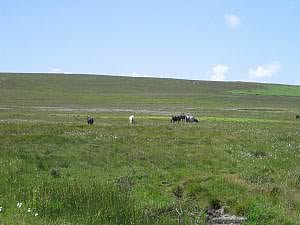 |
|||||||||
|
|||||||||||||||||||
Commons
Act receives Royal Assent The Commons Act, which updates laws governing common land that date back more than 700 years, has received Royal Assent.
Landscape Minister Barry Gardiner said the Commons Act 2006 would protect common land in England and Wales for future generations and promote sustainable farming, public access to the countryside, and the interests of threatened wildlife and their habitats. “Common land is central to our national heritage: we value it for agriculture, recreation, nature conservation, landscape and often for its historical and archaeological significance,” he said. “This is one of the most significant pieces of legislation protecting common land in our history. “This Act finally repeals the Commons Act of 1285, passed during the reign of Edward I, which has formed the basis of the way common land is protected and regulated for more than 700 years. “The new Commons Act builds on its legacy by creating modern, flexible laws that will ensure that we are looking after the interests of wildlife and the countryside as well as commoners, landowners, and the ordinary people who get so much enjoyment from our common land.” Common land is often highly valuable as a habitat for wildlife, with around 55% of common land in England being designated as a Site of Special Scientific Interest (SSSI), and only 63% of this land is in favourable or recovering condition – much lower than the 73% average for all SSSI land in England. The new Act enables commons to be managed more sustainably by commoners and landowners working together through new commons councils with powers to regulate grazing, vegetation and other agricultural activities. This will help bring more common land into good or recovering condition, contributing to the Government's target of 95% of all SSSIs being in good or recovering condition by 2010. It also sets new, clear criteria for registering town or village greens, which will give local people the ability to register places that are of value to them for recreation and green space, and protect them permanently. It also allows “missed” commons to be registered. There are 396,800 hectares of common land in England and 175,000 hectares in Wales contained in around 8675 separate commons. Common land represents 3% of England's area, and 12% of Wales's. The Act will also provide better protection for common land and greens by streamlining the consents system for works and fencing on commons and ensuring that existing protections are applied consistently. It will also reinforce existing protections against abuse, encroachment and unauthorised development. Mr Gardiner said implementation of the Act would begin immediately, and would be rolled out over a number of years. “Defra will establish a National Commons Stakeholder Group to ensure stakeholders have a clear way to contribute their views on how commons are managed and how the Act is implemented. It will also help us build and achieve consensus between stakeholders on matters of national interest, like managing priority wildlife habitats,” he said.
|
|||||||||||||||||||

|
|
||||||||||||||||||
| home | agri-services | pedigree
pen | news | dairy | beef | machinery property | organisations | site map |
|||||||||||||||||||

Department for Environment
Food and Rural Affairs
